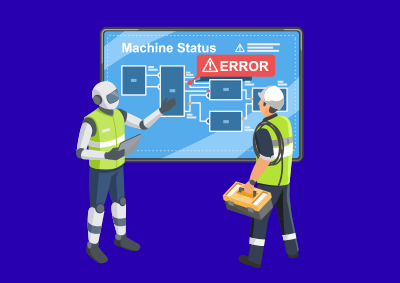
Secure digital transformation
Secure digital transformation represents a major challenge for companies wishing to take advantage of new technologies while protecting their sensitive data. It involves integrating high-performance digital tools into internal processes, while implementing robust cybersecurity protocols to prevent the risks associated with cyberattacks.

Digital certificates
Guaranteeing trust in the digital world
Digital certificates play an essential role in the security of Internet exchanges. They verify the identity of users, websites or devices, and ensure the confidentiality of communications through encryption. These certificates are the foundation of digital trust, essential for protecting sensitive data and preventing cyber-attacks.

Website security (SSL/TLS)
SSL/TLS certificates authenticate websites and encrypt data exchanged between browser and server, ensuring secure browsing for Internet users.

User authentication
They enable reliable identification of users in professional environments, facilitating secure access to online applications and services.

Electronic signature
Digital certificates guarantee the validity and integrity of electronic signatures, considerably enhancing the legal security of remotely signed documents.
The electronic signature
A key lever in digital transformation
The electronic signature revolutionizes the way documents are validated, offering a secure and rapid alternative to handwritten signatures. It guarantees the authenticity, integrity and non-repudiation of digital documents, while simplifying administrative processes and reducing paper-related costs.
01.
Commercial contracts
Electronic signatures make it easier to conclude contracts at a distance, speeding up transactions and ensuring the legal validity of agreements, even in the absence of a physical meeting.

02.
Administrative validation
In both the public and private sectors, it enables the rapid validation of official documents such as requests for authorization, tax declarations or internal reports.

03.
Financial transactions
It secures banking transactions and financial agreements, providing institutions and customers with a reliable, standards-compliant method of signing electronically.

Integrated software
Centralize data for better decision-making
With integrated software, companies can centralize all their data on a single platform. This facilitates the collection, organization and analysis of essential information, giving decision-makers a clear, real-time view of their business, enabling them to make informed decisions.
Business applications
Tailor-made tools to optimize
performance
Business applications play an essential role in optimizing corporate performance. Designed specifically to meet the unique needs of each sector, they automate and simplify day-to-day tasks, while ensuring better organization of workflows. Thanks to their customizability, these tools can be perfectly adapted to internal processes, promoting greater operational efficiency.

Company digitalization
A key strategic challenge
Digital transformation is revolutionizing the way companies work and their business models, by integrating digital technologies into the very heart of their activities. It enables them to improve productivity, innovate the services they offer, and better meet customer expectations in a constantly evolving environment.

Enhanced customer experience
Digital technologies offer new channels of communication and personalized services, boosting customer satisfaction and loyalty through faster, more personalized interaction.

Agility and innovation
Digital transformation fosters a culture of continuous innovation, enabling companies to adapt quickly to market changes and explore new business models.
Cybersecurity
Strengthening IT security in the workplace

Use multi-factor authentication (MFA) methods to verify user identity and limit the risk of unauthorized access.

Keep all software, operating systems and applications up to date to correct vulnerabilities and prevent attacks.

Regularly train employees in good IT security practices, such as recognizing phishing attempts.
Software development
Innovate and secure your solutions
In a constantly evolving technological environment, software development must reconcile several essential requirements. First and foremost, it must be flexible in order to adapt quickly to changing user needs and new market opportunities. At the same time, rapid development means delivering innovative functionalities within short timeframes, thus guaranteeing a competitive edge.
Process automation
Keys to greater efficiency and reliability

Productivity gains
Automation reduces the time spent on repetitive tasks, freeing teams to concentrate on higher value-added activities.

Reduced errors
By limiting human intervention in standardized operations, automation reduces the risk of errors and improves the quality of results.

Improved tracking and tracing
Automated systems record every stage of the process, facilitating control, performance analysis and compliance with internal or regulatory standards.

Digital storage
Manage and protect your data
Digital storage has become an essential pillar for companies wishing to manage their data efficiently while guaranteeing its security. Thanks to flexible solutions such as the cloud, it offers fast, secure access to information, wherever and whenever it is needed. At the same time, modern technologies optimize the organization and management of data, making it easier to find and use.
By combining enhanced security, scalability and accessibility, digital storage meets the growing needs of businesses, while controlling the costs and risks associated with information loss or theft.